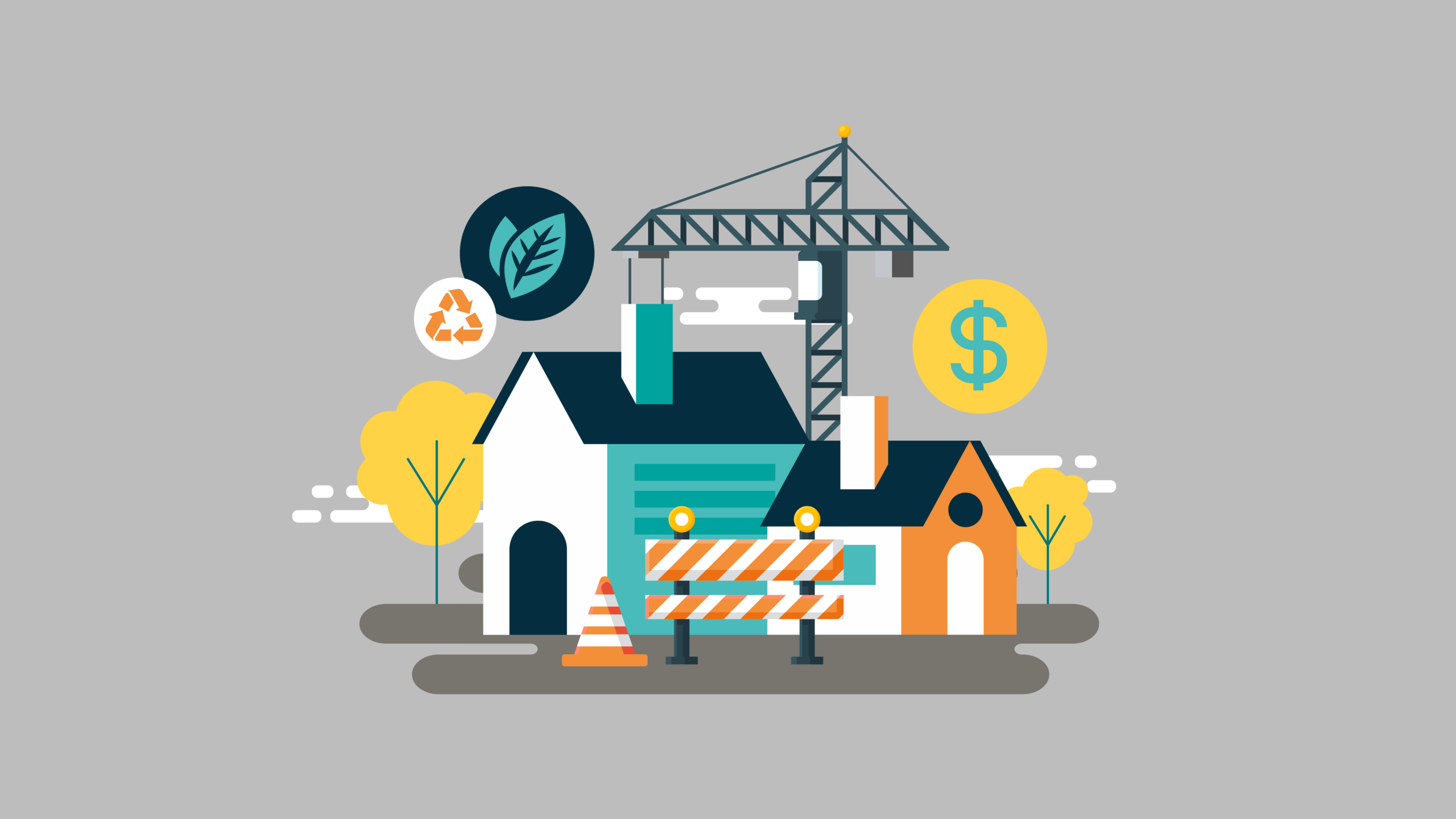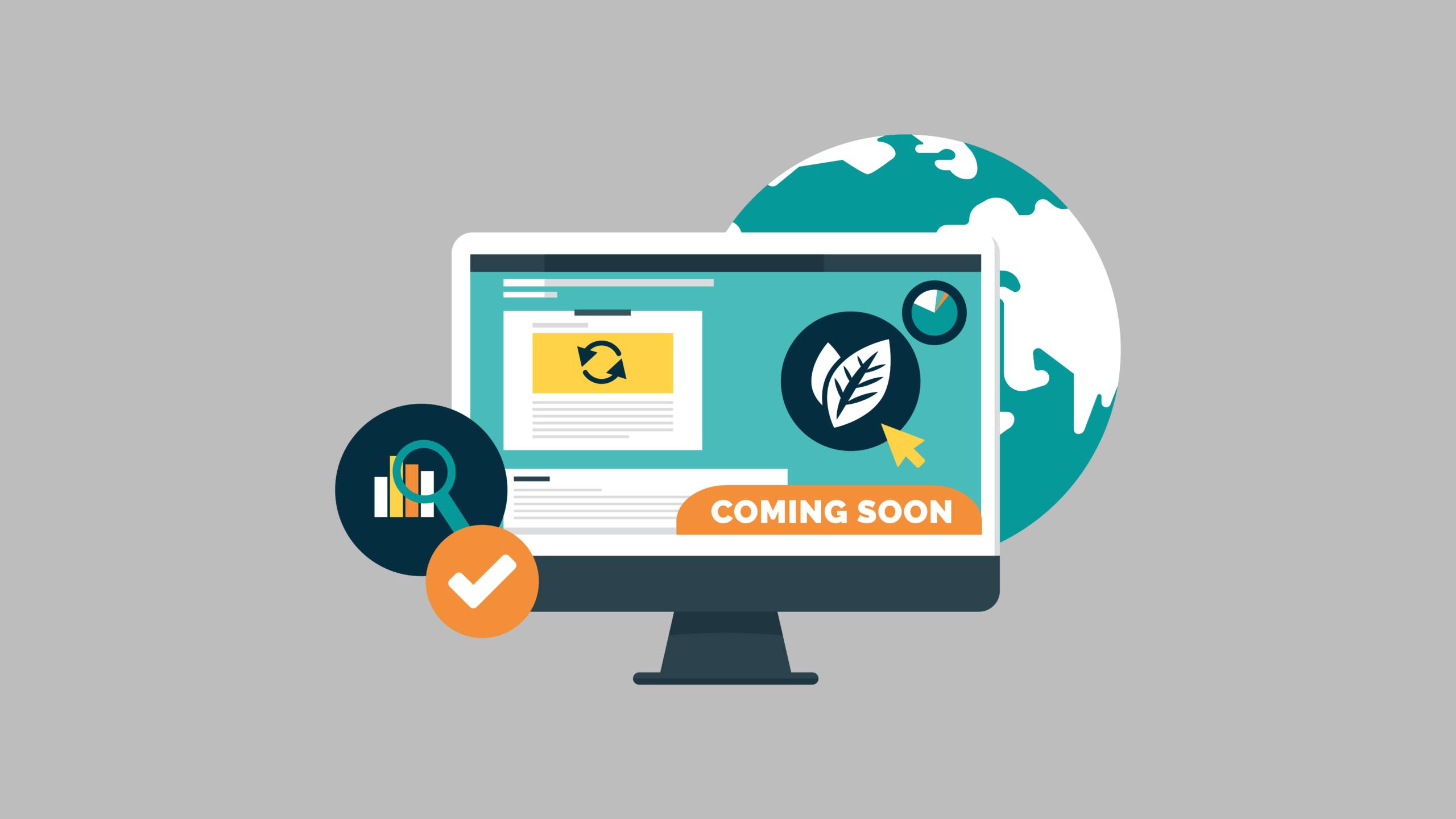The Building Energy Act as the key to efficient construction
by Senanur Günes | May 28th, 2024
In a world where the call for sustainability and environmental protection is growing ever louder, we face the challenge of making our buildings better and more efficient. But how can we achieve this goal? The answer lies in the German Building Energy Act (GEG), a law that is not only revolutionizing the construction industry but also paving the way for a greener future. The motto “Building Better” forms the basis for more sustainable construction methods and an energy-efficient future through the GEG.
This blog post explores how the GEG sets the standards for environmentally friendly building and its impact on the construction industry and our society. Ready to discover the future of building? Then let’s dive into the world of “Building Better” with the German Building Energy Act.
Sustainable building: Challenges, opportunities and goals for a climate-neutral future

Low-emission construction and business practices are a task for society as a whole, aimed at reducing resource consumption and emissions. Germany has set itself the goal of achieving climate neutrality in its building stock by 2045.
But what exactly does sustainability in construction mean? It encompasses the use of renewable energies, the reduction of energy consumption, the minimization of waste and emissions, and the creation of healthy indoor spaces. It is a necessary step to ensure an environmentally conscious future for generations to come.
Sustainability refers to the planning, construction, and use of buildings and infrastructure, taking into account ecological, economic, and social aspects. This minimizes negative environmental impacts and improves people’s quality of life. It is a comprehensive approach that aims to create low-emission, long-term profitable buildings and ensure their longevity.
However, sustainability in construction presents us with various challenges, while simultaneously offering many opportunities. One of these challenges is overcoming traditional construction methods and ways of thinking and developing innovative solutions, as well as developing new technologies and business opportunities (such as planBIC). Furthermore, significant costs are involved in recognizing the long-term economic benefits of an environmentally conscious building.
Energy-efficient construction and renovation: KfW funding opportunities for sustainable building projects

Furthermore, the KfW Development Bank offers a variety of funding programs for homeowners and renovators who want to realize energy-efficient and low-emission construction projects. The following funding programs are supported:
Energy-efficient construction and renovation:
- KfW offers low-interest loans and repayment subsidies for measures to improve the energy efficiency of residential buildings, such as facade insulation, the installation of efficient heating systems, or the use of renewable energies.
- KfW Efficiency Houses: Particularly energy-efficient new buildings that meet the KfW
- Efficiency House standard can benefit from funding conditions, including low-interest loans and repayment subsidies.
Construction supervision and energy consulting: KfW supports homeowners in the planning and implementation of their construction projects through financial subsidies for professional construction supervision and energy consulting.
KfW Environmental Program: The environmental program is aimed at companies, municipalities, and private homeowners who want to invest in environmentally friendly technologies and measures. This includes loans and grants for the use of renewable energies, improving energy efficiency, and reducing CO2 emissions.
KfW offers comprehensive consulting services and information materials for building owners and renovators to help them select the right funding program and submit their applications. Independent energy consultants and experts are also available to assist with the planning and implementation of energy-efficient building projects. Overall, building owners thus have the opportunity to implement their construction projects more cost-effectively and sustainably, while making a significant contribution to climate protection.
The Building Energy Act: Energy-efficient construction and renovation in the service of climate protection

The previous laws of the Energy Saving Ordinance (EnEV), the Renewable Energy Heat Act (EEWärmeG), and the Act on the Promotion of Renewable Energies in the Heating Sector (EEWärmeG) were replaced and consolidated in 2020 by the Building Energy Act (GEG). It contains requirements for the energy performance of buildings, the creation and use of energy performance certificates, and the use of renewable energies for building heating. The goal is to reduce the energy consumption of buildings and promote the use of renewable energies in order to achieve the German government’s climate protection targets.
Some of the key aspects and regulations of the Building Energy Act are:
- Energy efficiency standards: The GEG defines clear standards for the energy efficiency of buildings, which apply to both new buildings and renovations. It sets requirements for the maximum annual primary energy demand and the maximum transmission heat loss.
- Renewable energies: The GEG stipulates that a certain percentage of a building’s heating and cooling needs must be met by renewable energy sources, such as solar energy, biomass, geothermal energy, and ambient heat.
- Energy performance certificates: The GEG standardizes the requirements for energy performance certificates for buildings and creates transparency regarding energy consumption and the energy efficiency of buildings. Energy performance certificates are mandatory when a building is sold, rented, or newly constructed.
- Fines and sanctions: The GEG provides for fines and sanctions for violations of the energy requirements and obligations. Building owners and developers who fail to comply with the regulations can be fined.
- Adaptation periods: The GEG (Building Energy Act) provides for transitional and adaptation periods for existing buildings to allow for the gradual implementation of the new requirements, ensuring that older buildings also become progressively more energy-efficient.
Minimum requirements for building insulation: The GEG contains clear minimum requirements for the building insulation of buildings to ensure that they are adequately protected against heat loss, such as the requirements for the heat transfer coefficients of building components like walls, windows, and roofs.
The Building Energy Act is an important component of German climate and energy policy and sets clear standards for energy-efficient construction and renovation. It promotes the use of renewable energies, reduces the energy consumption of buildings, and thus contributes to achieving climate protection goals. However, this often requires investments in new technologies and training, which also creates new business opportunities.
Efficient building planning and sustainability with planBIC: Your guide through the information overload

In today’s world, where we are confronted with an information overload and often have to painstakingly search for relevant and helpful information, the question arises: How can we best and most quickly access the information we need without wasting hours scouring countless websites and still not achieving the desired results? The solution could soon be provided by the software “planBIC,” which introduces a new eco-tool specifically related to sustainability and the German Building Energy Act (GEG).
This innovative tool focuses on providing you with a tailored information source that allows you to quickly and efficiently focus on the relevant topics. Whether you are looking for technical terms, want to find suitable products for your construction project and location, or need to check legal requirements – planBIC offers you a user-friendly platform to accomplish all these tasks effortlessly.
Furthermore, planBIC helps you create an amortization plan, which helps you better understand and plan your financial obligations within your construction or renovation projects. And all this quickly and easily. The goal is to help you plan, build and renovate more efficient buildings, thereby making an important contribution to climate protection.
Conclusion
Sustainability and the German Building Energy Act (GEG) are two crucial factors for the future of the construction industry. By building and operating energy-efficient buildings and using resource-conserving building materials, we can not only protect the environment but also achieve long-term savings while simultaneously improving the quality of life for current and future generations. The GEG demonstrates that sustainability in construction is not an option but an obligation. It challenges building owners, architects, and planners to break new ground and develop innovative solutions that are both ecologically and economically sound.
Discover planBIC, a pioneering Software-as-a-Service solution that enables automated completeness and quality checks of construction project documents as well as collaborative working in the cloud. Revolutionieren Sie Ihre Bauprojekte durch effiziente Prüfungen.